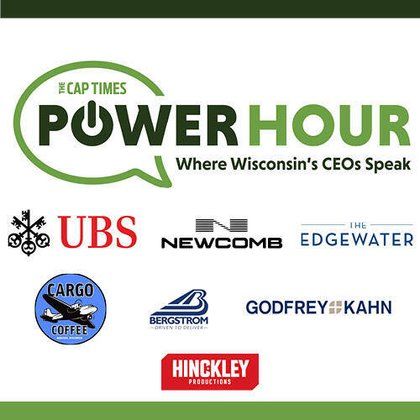By Tom Still
MADISON, Wis. – For at least 20 years, Wisconsin policymakers have taken a bipartisan road to making the state a more welcoming place for angel and venture capital investment.
That was evident during the birth of Wisconsin’s early stage investment tax credit, which is still viewed as a national model for levering private dollars in young companies. The late Sen. Ted Kanavas, R-Brookfield, and then-Commerce Secretary Cory Nettles set that tone in 2003. The work paid off when the 25% investor tax credits took effect in 2005.
The bipartisan pattern extended through several updates of the tax credit program and with the creation of what is now called the “Badger Fund of Funds” in the mid-2010s. Near-unanimous majorities in the Senate and Assembly voted to invest $25 million in that privately matched fund, which continues to invest in jobs-fostering startups across Wisconsin.
An opportunity to build on the tradition of bipartisan support for the state’s early stage economy is included in the 2023-25 state budget proposal unveiled Wednesday by Gov. Ton Evers.
While not highlighted in Evers’ remarks to a joint session of the Republican-led Legislature, his budget includes $75 million to be invested in a “venture capital program” that would require participating private funds to match that money overall at a 2-to-1 rate. No single private fund could qualify to manage more than 25% of the total state investment, which wouldn’t start until the 2024-25 budget year. The Wisconsin Economic Development Corp. would be required to establish an oversight board to help in its management of the program.
The Wisconsin Technology Council has called for a state-levered “fund of funds” in its policy papers since the late 2010s; a similar proposal to the latest idea was part of the 2021-23 state budget bill but failed to cross the finish line.
So, what might be different this time around? For starters, more demonstrated progress should “de-risk” the idea for lawmakers in both parties. Here are some factors that make Wisconsin more attractive to early stage investing – and a larger state role.
- In addition to earlier efforts such as the investor tax credits and the Badger fund, Wisconsin has seen solid growth in homegrown venture funds, corporate funds and angel funds. From a relative handful of funds in the early 2000s, the total includes 50 active funds and angel networks today.
- Those homegrown funds aren’t usually large enough to carry the load themselves, so investors from outside Wisconsin are often needed to bring a young company to its full potential. That is increasingly happening in Wisconsin. In 2021, 90 out-of-state investors took part in 42 investment rounds – which was nearly a third of the state’s total deals that year. That was up more than 60% from the previous year, during which 55 out-of-state investors participated in 31 rounds. Final numbers from 2022 aren’t collected yet, but the trend of out-of-state money gravitating to Wisconsin is continuing.
- Across the board, Wisconsin’s early stage investing is on a roll that can only be accelerated with a fund of funds. The three largest years on record for Wisconsin were 2019, 2020 and 2021 – and 2022 is certain to join that lineup. That growth is happening despite economic uncertainties in the larger economy.
- There is evidence that early stage investing is no longer just a “big city” phenomenon. More deals are getting funded across Wisconsin, especially in northeast and northwest regions. Even when deals are funded in the Madison or Milwaukee areas, they often create supply chains statewide as young companies acquire what they need. Such companies also attract and retain young talent in Wisconsin, which is vital in today’s tight labor markets.
- Companies funded through early stage deals create jobs that pay about 1.5 times the statewide average, which reinforces the idea – especially among home-grown young people – that they don’t need to leave Wisconsin to find a rewarding job.
The coming state budget debate will produce more than its share of partisan divides, but the venture capital program need not be among them. There is a history of careful bipartisan progress in Wisconsin. It’s an opportune time to build on it.
Still is president of the Wisconsin Technology Council. He can be reached at tstill@wisconsintechnologycouncil.com.





